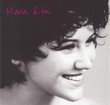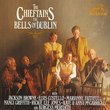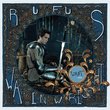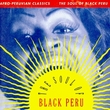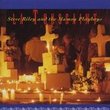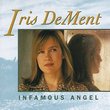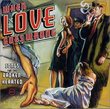| All Artists: Peter Warlock, George Frederick Handel, Claudio Monteverdi, Ruth Crawford Seeger, Joseph Schwantner, John Dowland, Heitor Villa-Lobos, George Crumb, Henry Purcell, Orpheus Chamber Orchestra, Margo Garrett, Dawn Upshaw Title: White Moon: Songs To Morpheus Members Wishing: 0 Total Copies: 0 Label: Nonesuch Release Date: 2/27/1996 Genres: Pop, Classical, Broadway & Vocalists Styles: Vocal Pop, Opera & Classical Vocal, Chamber Music, Forms & Genres, Suites, Historical Periods, Baroque (c.1600-1750), Modern, 20th, & 21st Century, Instruments, Reeds & Winds, Musicals Number of Discs: 1 SwapaCD Credits: 1 UPC: 075597936421 |
Search - Peter Warlock, George Frederick Handel, Claudio Monteverdi :: White Moon: Songs To Morpheus
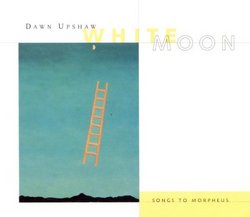 | Peter Warlock, George Frederick Handel, Claudio Monteverdi White Moon: Songs To Morpheus Genres: Pop, Classical, Broadway & Vocalists
Dawn Upshaw graces us with a template of nocturnal delights. The various musical styles range from Monteverdi to Crumb, keeping the listener from ever getting too comfortable. Her interprations of Warlock's haunting "Sleep... more » |
Larger Image |
CD DetailsSynopsis
Amazon.com Dawn Upshaw graces us with a template of nocturnal delights. The various musical styles range from Monteverdi to Crumb, keeping the listener from ever getting too comfortable. Her interprations of Warlock's haunting "Sleep" and Schwartner's "Black Anemones" are well- crafted and bewitching, but her usually-stellar musical sense is misguided in a disappointing "Bachianas Brasileiras No. 5" by Villa- Lobos. She sings youthfully and without vocal abandon, and the middle section is void of passion. Her lovely light voice sometimes treads dangerously on girlishness; it's most satisfying when exhibiting its full meaty radiance. Upshaw's pleasurable artistry creates a dreamy recording. --Barbara Eisner Bayer Similar CDsSimilarly Requested CDs
|
CD ReviewsCarefully crafted, challenging, ultimately beautiful Barbara Miller | Bellevue, WA United States | 08/12/2000 (5 out of 5 stars) "This CD is the product of great artistic care, expressing a moonlit night as a world both of healing rest and of vague anxiety and unrealized possibility. Dawn Upshaw's selection of early (Renaissance and Baroque) and twentieth-century pieces is arranged sequentially (and, in some cases, musically) to draw the listener through both aspects of this world. Peter Warlock's song "Sleep" is an excellent beginning to this project, setting John Fletcher's text to an accompaniment that recalls the sixteenth century while making use of tensions and dissonances that developed in the nineteenth century. The Monteverdi, Purcell, and Dowland songs are accompanied by one or two guitars, creating a sense of restful intimacy that is reinforced by Upshaw's smooth, clear lyric soprano. Her vocal technique, which emphasizes an ease of production and careful breath control rather than a more ringing operatic sound, brings a sensual richness to Handel's aria "Gentle Morpheus". This sensuousness also propels the famous and popular Villa-Lobos "Bachianas Brasileiras" aria, where a cello octet accompanies a dreamy vocalise with a more declamatory chant. Upshaw loves and performs a wide range of music, and one can expect her recitals to include modern pieces that can be described as challenging, both for the artist and for the audience, and this is no exception. The Schwantner "Black Anemones" and the Crawfor Seeger "White Moon" include odd intervals and dissonances which would normally not attract me. But Margo Garrett's accompaniment in "White Moon" is positively ethereal, and Upshaw's breath control and sense of phrasing can make even the oddest vocal lines sound inevitable and even beautiful. The George Crumb "Night of the Four Moons" is something else altogether. It is more a modern chamber piece than a song setting. There is a huge dynamic range between whispers and the loudest sounds that the unorthodox chamber ensemble (alto flute, piccolo, banjo, electric cello, and percussion, in addition to the voice) can produce. This is not music that you will want to listen to casually in the background. Even with the evocative Asian-influenced musical phrases, I'm not sure how soon I will seek it out to hear again. But, as with everything else on this CD, it is performed with great artistry and Crumb's desired mood of enchantment is certainly achieved. The preceding songs on the CD have led up to these 15 minutes of almost alien settings of Lorca poems about the moon, but we are brought back to earth again by the placement of the Purcell song "See even night" at the very end." The right selections for the right voice Barbara Miller | 12/01/2001 (5 out of 5 stars) "The theme of this music is Sleep and Dreams. The 'night setting' is reflected in a very interesting variety of songs, both old and modern. The ethereal quality of much of this music is well suited to Upshaw's silver toned voice, which expresses the fantasy and other worldliness of the compositions without losing the idea that the human soul can find fantastic strangeness and blessed comfort in each night of its existence. By the way, and most significantly: the music is beautiful beyond words." Making Connections Rebecca M | Somerville, MA USA | 03/17/2002 (4 out of 5 stars) "Most of Dawn Upshaw's albums are so artistic in their conception, that you want to buy them regardless of what is on it. It takes true talent to "sell" Monteverdi, Schwantner, Crumb, and Purcell on the same CD! But Upshaw does with performances that are sensitive, but always in the spirit of "Songs to Morpheus." Upshaw doesn't just program her album with songs that all share the same literary theme, but she instills the idea of Morpheus, and by extension, the moon, in all the pieces--the "soother of suffering."
Handel's "Gentle Morpheus" is sung with gentle restraint, bringing out the subtle nuances so prevalent in Handel's vocal works. Upshaw has a clear understanding of early music performance and does not seek to "overinterpret" the music. Likewise, her performance of the newer pieces are equally sensitive. Although her diction is a bit obtrusive in the verse of Villa-Lobos Bachianas Brasileiras No. 5, her vocalise is so moving, particularly at the end. Her performance of the Crumb is worthy of Jan de Gaetani, and other top-notch performers of Crumb's music." |

 Track Listings (12) - Disc #1
Track Listings (12) - Disc #1

